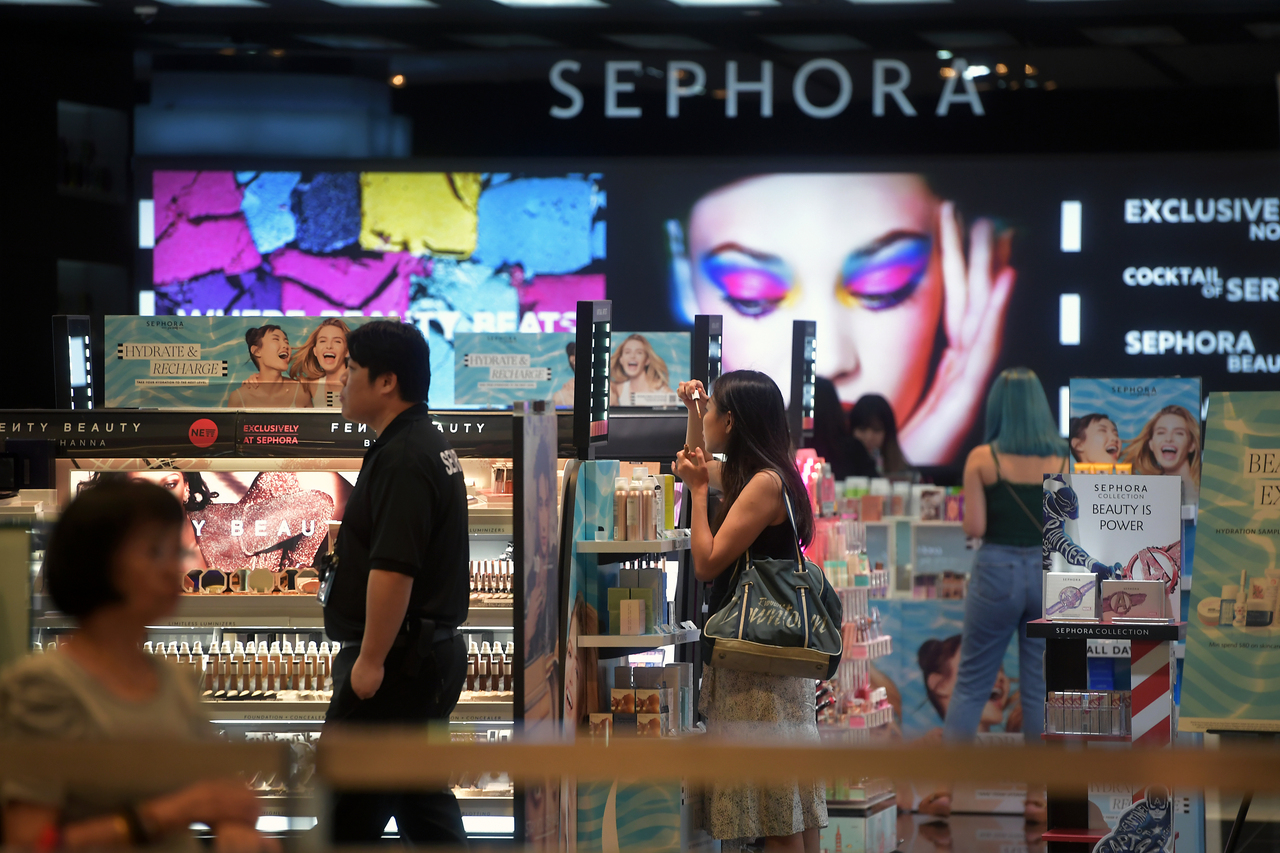Lipsticks out, lotions in: Beauty industry set for facelift and comeback, says DBS
Sign up now: Get ST's newsletters delivered to your inbox

More consumers will be stocking up on serums and cleaners.
PHOTO: ST FILE
Follow topic:
SINGAPORE (THE BUSINESS TIMES) - Prepare for a surge in online beauty shoppers and skincare-mask fanatics.
While the ubiquity of surgical masks and the work-from-home (WFH) trend are unlikely to spell the end for make-up, more consumers will be ditching their lipsticks and blushes while stocking up on serums and cleaners.
That's according to DBS Chief Investment Office (CIO), which said employees around the world will increasingly see cosmetics as less important as they no longer need to commute to the workplace as frequently as before.
"Consumers are likely to divert their discretionary spending from cosmetics to skincare or personal care instead," wrote Mr Dylan Cheang, senior investment strategist at DBS, in a note on Wednesday (Sept 9).
"Pamper yourself" will also become the new mantra in the post-Covid world, as more opt to go bare-faced as well as focus on their personal well-being.
Even with the arrival of a vaccine, the WFH phenomenon is here to stay. "Not only have companies realised that WFH is equally effective in terms of workers' productivity, this practice will also help companies reduce their operating expenses via reductions in office rental costs," Mr Cheang said.
Aside from seeing shifts in demand, the resilient global beauty industry - comprising cosmetics, skincare, personal care and fragrances - is also set to rebound once a Covid-19 vaccine is discovered.
DBS CIO dubbed the industry a "sleeping beauty" while adding it as an investment idea to the "vaccine discovery" thematic basket, on top of its earlier recommendations of the athleisure, restaurant, hotel, casino and leisure segments.
DBS CIO has urged investors to embrace some optimism and position their portfolios for when a novel coronavirus vaccine is found. It noted that industries that suffered the most during the pandemic will, conversely, be the biggest beneficiaries of a vaccine discovery.
The global beauty industry will be a "geared beneficiary of vaccine discovery as society returns to normalcy", with a recovery just around the corner especially with pent-up demand, Mr Cheang said on Wednesday.
As the virus curve continues to flatten in the US and overall work/social life returns to normalcy, DBS CIO believes that demand for cosmetics and other beauty-related products will continue to rebound.
From an investment perspective, the global beauty industry is attractive given its strong secular tailwinds and lucrative margins, according to DBS CIO.
For one thing, it is a play on the millennials and Gen Z consumption trend - rising income and growing emphasis on personal well-being within these cohorts will drive demand for beauty products in the years ahead, DBS CIO said.
Besides, the industry delivers plump margins. DBS CIO noted that the operating margin for the global cosmetics and personal care industry stands at 18 per cent - substantially higher than global equities' 9.4 per cent as well as the global consumer-discretionary sector at 5.2 per cent.
"The beauty industry has been outperforming global equities over the years, and we expect this positive trend to persist," Mr Cheang wrote.
In-store purchases of beauty products could also soon give way to e-commerce, in line with the trend in other parts of the retail sector.
Beauty-product stores around the world have shuttered as a result of the Covid-19 pandemic, and some of these closures are permanent, Mr Cheang wrote.
"To deal with the new environment, beauty-product brands will increasingly shift their sales from in-store to online," he added.
This is despite most customers - regardless of age groups - preferring brick-and-mortar stores as they can sample beauty products on the spot before buying them.
Propelled by "strong secular demand", the global beauty industry has been resilient through the business cycles, and even the 2007-2010 sub-prime crisis failed to dent its trajectory, DBS CIO noted.
Since 2005, it has registered a compound annual growth rate of 5 per cent. In 2019, total retail sales hit a high of US$499 billion, with personal care products accounting for the lion's share of 49 per cent, followed by skincare products at 28 per cent.

